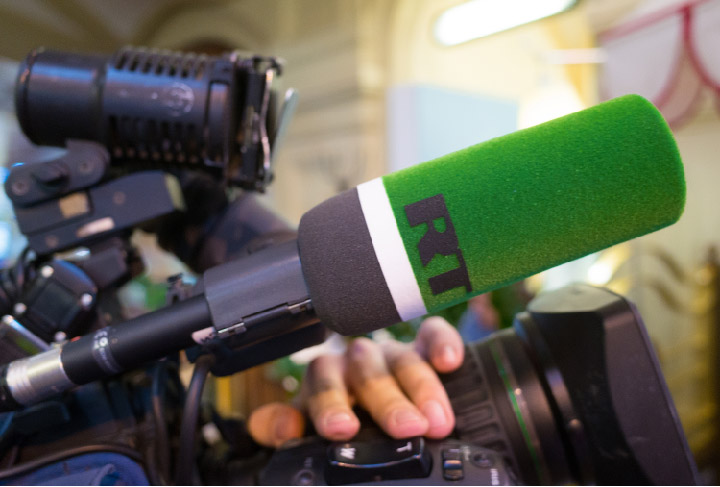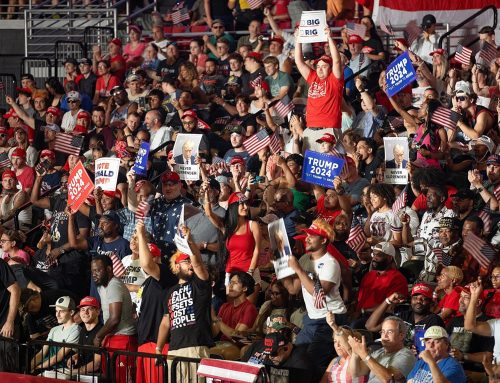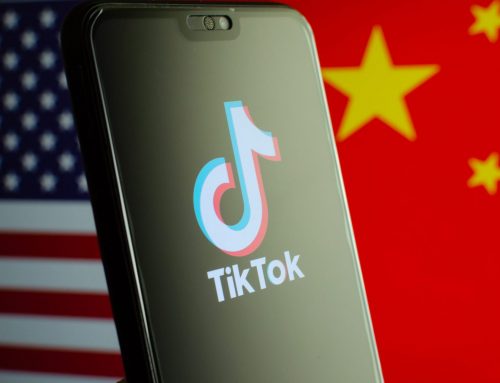Last week, Russian state media provided substantial coverage of controversies surrounding the release of Dr. Anthony Fauci’s emails and renewed U.S. interest in investigating the origins of the coronavirus. State media amplified domestic criticisms of Fauci, as well as related calls for him to testify before Congress, and suggested that his forthcoming book was pulled from pre-order availability due to the emails. They also connected both the emails and the renewed attention on the theory that the coronavirus leaked from a Wuhan laboratory to metanarratives like criticism of the mainstream media, social media censorship, and the idea that the United States is motivated solely by political interests. In coronavirus coverage, Russian diplomats continued to promote the Sputnik V vaccine and state that Russia’s desire is to “share” the vaccine with the world, in supposed contrast to other vaccine-producing countries. Some content also continued to claim that the West has sought to undermine the Russian vaccine. Russian diplomats and state media also promoted last week’s St. Petersburg International Economic Forum, with the top three most frequently used hashtags for the week related to the event (though this is due in part to the @SPIEF account, which was particularly active last week). Monitored Russian accounts mainly highlighted Putin’s remarks, which touched on Nord Stream 2, coronavirus vaccine access, and Russia’s foreign agent law, among other topics. TASS also reported Russian Foreign Ministry Spokesperson Maria Zakharova’s comments that BBC journalists refused to participate in her session on “Foreign Media Agents in Russia.” Finally, Russian diplomatic accounts on Twitter also marked Russian Language Day (June 6) with customary public diplomacy messaging, like celebrations of 19th century Russian poet Alexander Pushkin, whose birthday falls on the same day. However, the positive messaging could not escape at least one claim that Ukraine and the Baltics discriminate against Russian speakers.
Chinese diplomats and state media pounced on last week’s revelations that Denmark helped the NSA tap the phones of various European leaders between 2012 and 2014. Chinese Twitter accounts monitored on Hamilton 2.0 highlighted how upset Europeans should be toward the United States. State media highlighted the “outrage” in Europe and questioned the scandal’s impact on the transatlantic “bond of trust.” One Chinese official was blunter, stating that “the U.S. does not see Europe as a partner.” Another Beijing talking point was that this scandal strengthened the case for Huawei’s participation in European telecommunication networks. Part of this argument was simply calling U.S. initiatives against Chinese spying hypocritical, but another point was that Huawei would actually protect countries that implement its technology from U.S. espionage. Lastly, Chen Weihua, China Daily’s EU bureau chief, made it his personal mission to go after CNN—a “US govt tool”—as well as Deutsche Welle, AFP, and others to promote the scandal in the global news cycle. With the coronavirus still the main topic of conversation among the Chinese network last week, Chinese diplomats and state media continued issuing accusations aimed at deflecting mounting pressure around the theory of a possible lab leak in Wuhan. Spokesperson Zhao Lijian, an early spreader of conspiracy theories surrounding Fort Detrick research lab, attacked U.S. calls for an open investigation into the origins of the virus. He also renewed claims that there was a connection between the Maryland lab and a Japanese WWII military unit–Unit 731—with a grim history of human experiments. CGTN, Xinhua, and the Chinese embassy in France were among the voices that amplified the Unit 731 narrative. But Chinese officials and state media outlets also trumpeted their own achievements in the global fight against the coronavirus. From the Chinese embassy in Brazil touting China’s vaccine export generosity to state media’s endless stream of triumphalist stories, every day last week brought upbeat stories about China assuming the mantle of global leadership. As per usual, Xinjiang remained the second most mentioned topic last week by the Chinese network monitored on Hamilton. Last week saw new content promoting variations on established themes: Xinjiang is a beautiful tourist destination, the region’s inhabitants have never had it so good, the West—this week Canada—is where real genocides happen, and witnesses of Chinese human rights abuse are liars. Following the previous week’s analysis comparing Chinese narratives about Xinjiang with those focusing on Tibet, CGTN released a short video—“Why do Western countries always play the ‘Tibet card’?”—accusing Westerners of imperialism and of seeking to divide China.
Iranian media were mostly consumed last week with coverage of and reactions to the first presidential debate between the seven approved candidates. The debate was heated, with the relatively moderate candidate Abdolnasser Hemmati accusing four hardline candidates of covering for leading hardliner Ebrahim Raisi, which they sharply denied both on the stage and in remarks after the debate. The hardline candidates focused on attacking Hemmati and the Rouhani administration for their mishandling of the economy in the face of Western sanctions. Conservative politician Saeed Jalili continued this line of attack on Twitter after the debate, and his tweets blasting reformists both in and out of government garnered some of the highest engagement of any in the Tehran Twittersphere last week. He attacked Hemmati’s support for the JCPOA specifically in one of the most widely shared tweets. In an ironic twist, hardliners Mohsen Rezaee and Alireza Zakani, as well as reformist Abdolnasser Hemmati, complained on Twitter (which is banned in Iran) that Islamic Republic of Iran Broadcasting had required them to re-edit their campaign videos or to remove sensitive interviews from their websites. Hemmati claims that he was asked to remove conversations with Iranian women voters from his video. Tasnim News mocked Hemmati for his complaint, accusing him of “censoring” critical economic data when he was head of Iran’s central bank. Finally, many in Iranian politics cheered the apparent downfall of Israeli Prime Minister Benjamin Netanyahu, though most avoided any praise for the incoming government. Many followed Foreign Minister Javad Zarif’s lead in linking Netanyahu to “Bolton, Trump, and Pompeo,” and celebrating Iran’s role in relegating them to the “dustbin of history.” PressTV specifically linked the possibility of anti-democratic efforts to keep Netanyahu in power to the January 6 riot at the Capitol in Washington.
The views expressed in GMF publications and commentary are the views of the author alone.








